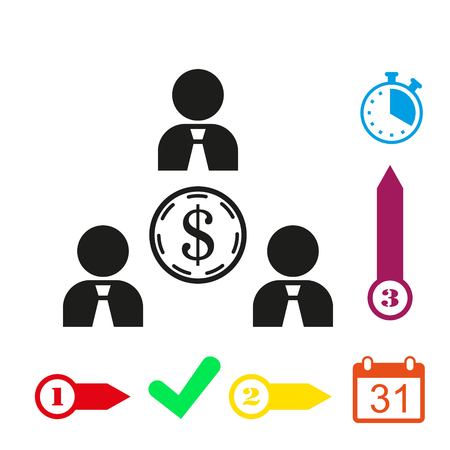1. Understanding the Early Retirement Income Gap
Early retirement is an appealing prospect for many in the UK, promising more time to pursue personal interests and a break from the nine-to-five routine. However, one of the key challenges faced by early retirees is managing the income gap that often arises before they become eligible for the State Pension. In the UK, the State Pension age is currently set at 66, and will gradually increase in the coming years. This means individuals who stop working in their late 50s or early 60s may face several years without access to this vital source of income.
The shortfall occurs because private pensions, savings, and investment income are typically expected to bridge the gap until state benefits kick in. Yet, not everyone has sufficient private pension savings or alternative sources of income to comfortably cover living costs during this period. Furthermore, state pension rules are strict—early access is generally not permitted unless under exceptional circumstances such as severe ill health. For those relying on workplace pensions, taking money out early can lead to reduced payouts later on due to smaller accumulated funds and longer retirement periods.
This financial limbo can be particularly acute for people who have had career breaks, periods of part-time work, or self-employment without consistent pension contributions. Understanding these structural issues is crucial for anyone considering early retirement in the UK. By identifying what causes the income gap, future retirees can better prepare strategies to manage or supplement their finances during this transitional phase.
2. Flexible and Part-Time Work Opportunities
For those embarking on early retirement in the UK, bridging the income gap often means seeking flexible or part-time work that fits around new routines and personal commitments. The British job market offers a range of options tailored for retirees who want to keep busy, stay social, or simply supplement their pension income. Below is a review of some popular avenues worth considering.
Popular Flexible Roles for Early Retirees
Flexible work is especially valued for its adaptability. Many positions can be found locally or online, allowing retirees to choose hours that suit their lifestyle without the pressure of a full-time role. Here are some tried-and-tested options:
| Job Type | Description | Typical UK Pay (per hour) | Flexibility Level |
|---|---|---|---|
| Retail Assistant (Part-Time) | Working in local shops or supermarkets; often requires weekend or evening shifts. | £9-£12 | High |
| Seasonal Roles (e.g., Christmas temp) | Short-term positions during busy periods, such as Christmas or summer festivals. | £10-£14 | Very High |
| Tutoring/Teaching Assistant | Helping students in subjects you are experienced in, either privately or through agencies. | £15-£35 | Moderate to High |
| Delivery Driver/Rider | Delivering groceries or takeaways locally, often using your own vehicle or bicycle. | £10-£15 + tips | High |
| Dog Walking/Pet Sitting | Caring for pets in your neighbourhood, great for animal lovers. | £8-£15 | Very High |
| Museum/Heritage Site Guide | Sharing knowledge with visitors at historic locations; often seasonal and sociable. | £10-£13 | Moderate |
| Befriending & Social Care Roles | Supporting elderly people or vulnerable adults, usually through charities or councils. | £9-£12 | Moderate to High |
The Benefits of Casual and Local Seasonal Work
Certain roles—like working at local markets, assisting at events, or helping out during harvests—offer not only extra cash but also opportunities to connect with the community. Seasonal jobs are widely available throughout the UK, from garden centres in spring to hospitality work in seaside towns during summer holidays. These roles tend to be less competitive and open to people of all ages, making them well-suited for early retirees who may want variety without a long-term commitment.
Navigating Online Platforms and Agencies
A significant shift has occurred with the rise of online job platforms catering specifically to flexible workers. Websites such as Indeed Flex, Taskrabbit, and WorkingMums frequently list temporary contracts and casual vacancies ideal for those looking to dip in and out of the workforce. Signing up with local recruitment agencies can also help match your skills and interests with available part-time posts across retail, administration, education support, and more.
A Note on Tax and Allowances
If you take on paid work during early retirement, its important to monitor your earnings relative to tax thresholds and any pension-related allowances. The Personal Allowance currently stands at £12,570 (2024/25), so ensure your additional income doesn’t inadvertently affect your entitlement to certain benefits or tax reliefs.
This practical approach—mixing flexible work with the freedom of retirement—not only helps bridge financial gaps but can enhance well-being by keeping you active and engaged within your local community.

3. Self-Employment and Freelancing Options
If you are considering early retirement in the UK, self-employment and freelancing can offer flexible routes to bridge the income gap while maintaining a work-life balance that suits your new lifestyle. The British market has evolved rapidly in recent years, making remote gigs, consulting, and freelance roles more accessible than ever before. Assessing these options requires both a realistic appraisal of your skills and an understanding of current trends within the UK economy.
Consulting: Leveraging Professional Experience
Many retirees find consulting to be a natural transition, particularly if they possess specialised knowledge or leadership experience from their previous careers. Consulting roles can range from short-term projects for SMEs (small and medium-sized enterprises) to longer-term advisory positions with larger firms. In the UK, sectors such as finance, education, healthcare, and technology consistently seek experienced consultants who understand local regulations and business practices.
Remote Gigs: Embracing Digital Flexibility
The rise of remote working has opened up numerous gig opportunities that cater to British workers seeking flexibility. Websites like PeoplePerHour or Upwork feature projects tailored to UK clients across fields like digital marketing, copywriting, web development, and virtual assistance. For those comfortable with technology, remote gigs allow you to earn supplementary income without commuting or rigid schedules—a particularly appealing prospect during retirement.
Freelance Work: Niche Skills and Creative Pursuits
Freelancing continues to thrive in creative industries such as graphic design, photography, writing, and video editing. The UK is home to a vibrant creative sector—especially in cities like London, Manchester, and Edinburgh—providing ample opportunity for retirees to monetise lifelong passions or hobbies. Freelancers must be proactive about networking and building an online presence through platforms like LinkedIn or local trade associations. With persistence, these avenues can yield both financial rewards and personal fulfilment during early retirement.
Ultimately, whether you’re consulting for British businesses or offering freelance services on digital platforms, self-employment during early retirement offers adaptability while keeping you engaged with the evolving UK marketplace. It’s important to regularly assess your workload and earnings potential against your lifestyle goals—ensuring your chosen path remains both sustainable and rewarding.
4. Rental Income and Sharing Economy
For early retirees in the UK, leveraging property assets to generate additional income can be both rewarding and practical. Whether you own a second property, a spare room, or simply wish to participate in the sharing economy through platforms like Airbnb, there are several routes to safely and legally supplement your retirement funds.
Letting Out Property: Legal Considerations
The UK has clear regulations for residential letting. Landlords must ensure properties meet safety standards—this includes annual gas safety checks, Energy Performance Certificates (EPC), working smoke alarms, and compliance with local licensing schemes. Tenancy agreements should be drawn up in writing, typically as Assured Shorthold Tenancies (ASTs). Proper deposit protection in a government-approved scheme is also mandatory. Early retirees should be aware of their tax obligations: rental income above the £1,000 property allowance must be declared to HMRC and may be subject to Income Tax after allowable deductions.
Room Rentals: Rent a Room Scheme
If you prefer not to let out an entire property, the UK government’s Rent a Room Scheme allows homeowners to earn up to £7,500 per year tax-free by renting out furnished accommodation in their main home. This can be an ideal way for early retirees to top up their income without significant administrative burden. To qualify, the rented space must form part of your primary residence.
Summary of Rental Options and Allowances
| Rental Option | Tax-Free Allowance | Key Requirements |
|---|---|---|
| Letting Entire Property | £1,000 property allowance | EPC, Gas Safety, Deposit Protection, Tenancy Agreement |
| Rent a Room Scheme | £7,500 per year | Main home only, furnished room(s), optional opt-in/out on tax return |
| Airbnb/Short-Term Lets | £1,000 trading allowance or Rent a Room if eligible | Local council rules, planning permission if frequent/whole property letting |
Navigating Airbnb and Short-Term Lettings
The sharing economy offers flexibility for those wishing to rent on a short-term basis. However, compliance with local council regulations is essential—some boroughs require specific licences or restrict the number of days you can let a property each year (e.g., 90-day rule in London). Insurance coverage should be checked or arranged specifically for short-term guests. If using Airbnb or similar platforms, keep detailed records of income and expenses for tax purposes.
Best Practices for Retirees Entering the Rental Market:
- Consult with your local council before starting any letting activity.
- Keep documentation organised for all tenancies or guest stays.
- Consider professional letting agents or trusted platforms for additional support.
- Be transparent with potential guests or tenants about house rules and expectations.
- Review insurance policies to ensure adequate cover against potential damages or liabilities.
Tapping into rental income streams can significantly bridge the financial gap during early retirement in the UK. By understanding regulations and making informed decisions, retirees can confidently boost their earnings while maintaining peace of mind.
5. Investing for Supplementary Income
For those entering early retirement in the UK, investing wisely can be a practical way to generate supplementary income and bridge the gap before state pension eligibility. The British financial landscape offers several tried-and-tested avenues tailored to both cautious and enterprising investors alike.
Utilising Individual Savings Accounts (ISAs)
ISAs remain one of the most tax-efficient investment vehicles available in Britain. With options such as Cash ISAs, Stocks & Shares ISAs, and Innovative Finance ISAs, retirees can grow their savings or investments without paying income or capital gains tax on returns. For steady supplementary income, many favour the Stocks & Shares ISA, which allows investments in dividend-paying shares, funds, and bonds. It’s important to remember the annual ISA allowance—£20,000 for the 2024/25 tax year—and to diversify holdings within the ISA wrapper for both growth and risk mitigation.
Dividend Stocks: Generating Regular Returns
Dividend stocks are a mainstay for many UK retirees seeking consistent income. Companies listed on the FTSE 100 and FTSE 250 often pay regular dividends that can supplement other retirement income streams. Focusing on well-established firms with a reliable dividend history—such as Unilever, National Grid, or British American Tobacco—can offer some stability. However, it is wise to review each company’s fundamentals and dividend cover ratio, as payouts are not guaranteed and may fluctuate with economic conditions.
Bonds: Balancing Risk and Reliability
Bonds provide another means of earning passive income during early retirement. UK government bonds (gilts) and high-quality corporate bonds can deliver predictable interest payments. Gilts are particularly valued for their safety and liquidity, though yields tend to be lower compared to equities. For those willing to accept slightly more risk for higher returns, investment-grade corporate bonds or bond funds may be suitable alternatives. Many retirees choose a mixed approach—combining equities for growth with bonds for capital preservation—to manage volatility as they draw down their investments.
Practical Considerations
Regardless of the chosen investment path, it is crucial to assess personal risk tolerance and time horizon before allocating funds. Some may prefer consulting a regulated independent financial adviser to tailor an investment plan suited to individual circumstances. Additionally, always account for inflation when projecting future income needs; what seems sufficient today might lose value over time without prudent planning.
Summary
In summary, supplementing early retirement income through ISAs, dividend stocks, and bonds represents a distinctly British set of options that blend tax efficiency with potential for steady cash flow. By understanding these tools and approaching them with due diligence, early retirees in the UK can create a more secure financial bridge until full retirement benefits become accessible.
6. Navigating Tax Implications and Allowances
Understanding the tax landscape is crucial for anyone earning money during early retirement in the UK. While generating income can help bridge financial gaps, it’s important to remain compliant with HMRC regulations and make the most of available allowances. Here are some key considerations:
Personal Allowance and Income Tax Bands
The UK provides a tax-free Personal Allowance (£12,570 for the 2024/25 tax year). Any income above this threshold is taxed according to set bands. If you’re supplementing your pension with part-time work, freelancing, or rental income, be mindful of how these earnings might push you into higher tax brackets. It’s worth noting that your Personal Allowance may be reduced if your total income exceeds £100,000.
National Insurance Contributions (NICs)
If you are below State Pension age and continue working, you may need to pay National Insurance on your earnings. However, once you reach State Pension age, you generally stop paying NICs even if you keep working. Early retirees who take up self-employment should register with HMRC and understand the difference between Class 2 and Class 4 contributions.
Allowances for Savings and Investments
The UK offers several allowances that can help maximise your post-retirement income. For example, the Savings Allowance allows basic rate taxpayers to earn up to £1,000 in savings interest tax-free (£500 for higher rate taxpayers). The Dividend Allowance lets you earn up to £1,000 in dividend income without paying tax (as of 2024/25). Utilising ISAs (Individual Savings Accounts) is another effective way to shelter investment returns from tax.
Ensuring Compliance: Reporting and Record-Keeping
If you’re earning through self-employment or rental properties, keeping detailed records is essential. You may need to complete a Self Assessment tax return each year. Use HMRC’s digital services where possible and consider professional advice for complex situations.
Tax-Efficient Strategies
To optimise your net income, consider spreading withdrawals from pensions, utilising spousal allowances if relevant, and timing any lump sum payments carefully to avoid unnecessary tax charges. Being proactive about your tax affairs will help ensure that earning extra during early retirement remains both rewarding and compliant.
7. Community Support and Government Schemes
For early retirees in the UK, bridging the income gap is not only about personal effort; it’s also about tapping into the extensive support offered by local communities and government-backed schemes. Understanding what’s available can make a substantial difference when navigating the transition to financial independence before the State Pension age.
Local Community Aid
Many towns and cities across the UK have established networks that provide practical assistance to those in need. Community centres often host workshops on budgeting, job hunting, and starting small businesses. Food banks, community kitchens, and clothing exchanges can help reduce everyday living costs, freeing up more resources for other priorities. Additionally, local councils may run targeted programmes aimed at supporting early retirees looking to reskill or volunteer—both of which can lead to paid opportunities.
UK Government Benefit Schemes
The UK government offers several benefit schemes specifically designed to support individuals with limited incomes before pension eligibility. For example, Universal Credit can provide essential financial support if you’re seeking work or working part-time during early retirement. The New Style Jobseeker’s Allowance (JSA) is another option for those actively seeking employment, and Employment and Support Allowance (ESA) is available if health concerns limit your ability to work. It’s worth exploring whether you qualify for Council Tax Reduction or Housing Benefit as well, depending on your circumstances.
Pension Credit for Those Over 66
While most early retirees won’t yet qualify for Pension Credit, it’s important to plan ahead. Once eligible, this benefit can top up your weekly income if it falls below a certain threshold and may unlock further entitlements such as free TV licences or Cold Weather Payments.
Practical Steps for Early Retirees
Start by contacting your local Citizens Advice Bureau—they offer confidential guidance on claiming benefits, finding grants, and connecting with community resources. Turn2us and Entitledto are reputable online tools that help you check eligibility for various schemes in minutes. Don’t overlook smaller charities either; many provide hardship grants tailored to specific professions or life situations.
Tapping into these UK-specific supports—both governmental and community-based—can significantly ease the process of bridging the income gap during early retirement. With a proactive approach and an openness to seeking help, it’s possible to maintain both financial stability and quality of life while pursuing new opportunities ahead of traditional retirement age.


